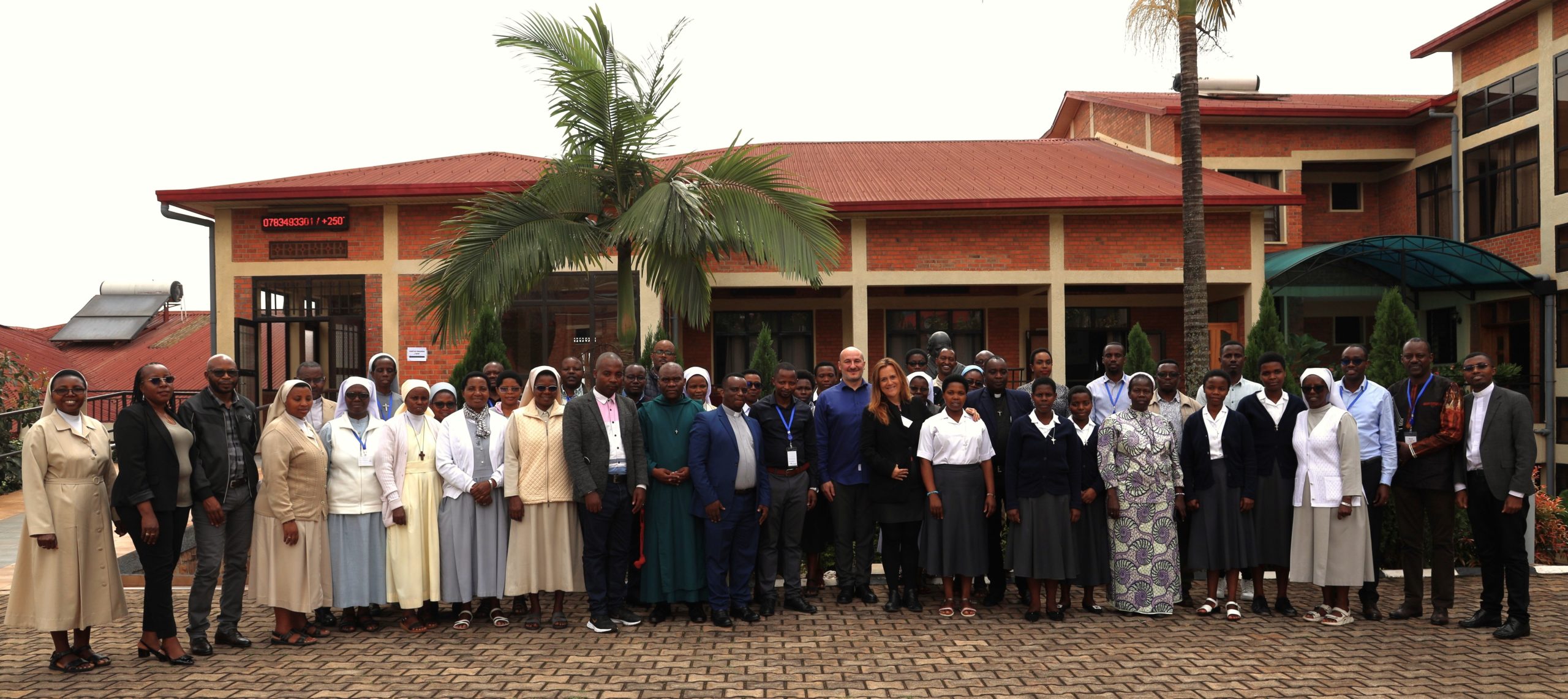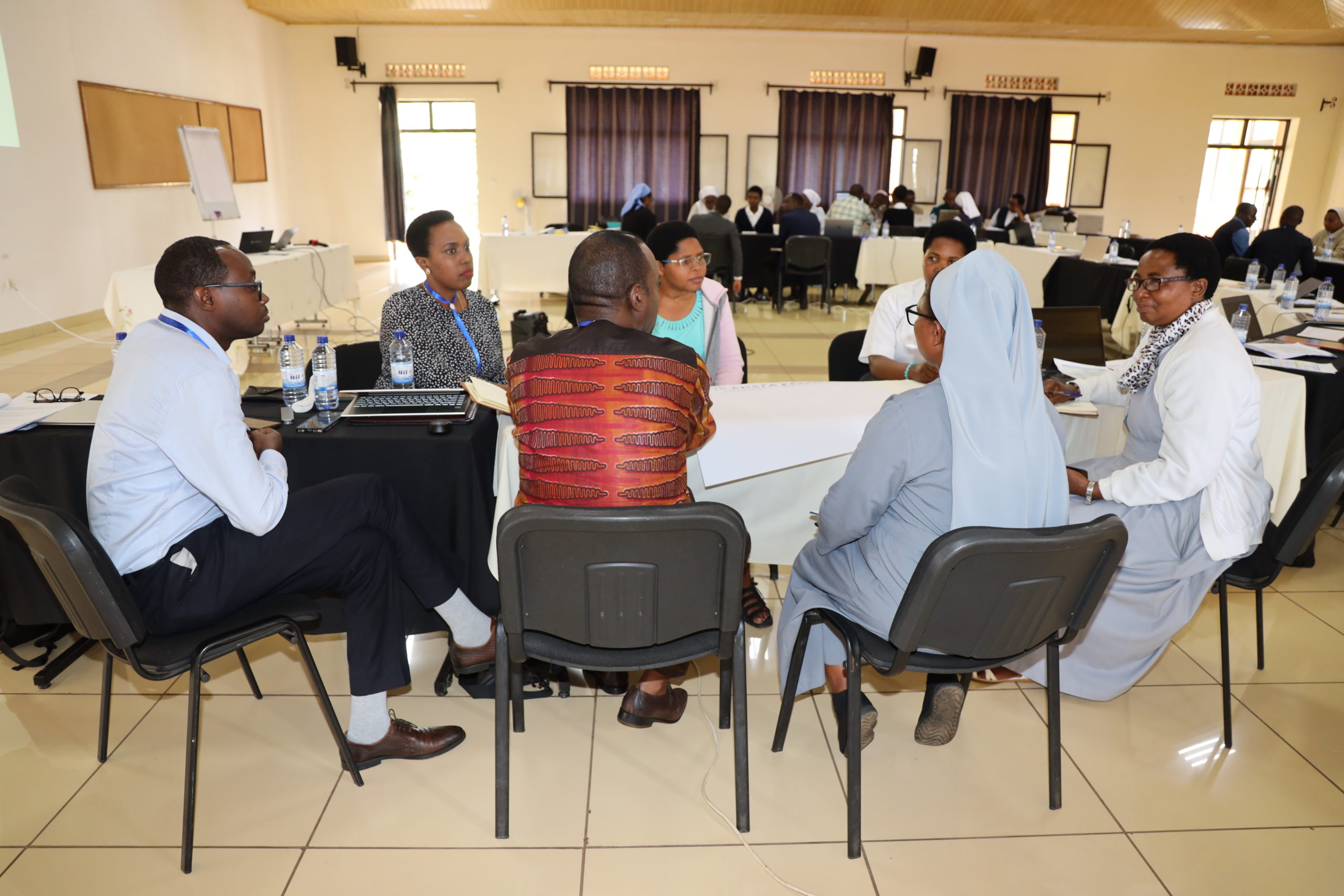Almost 50 delegates from Catholic institutions across Rwanda benefited from a workshop organized by Ethical Artificial Intelligence for Human Development (EAiD) together with Caritas Rwanda at Centre Saint Vincent Pallotti Gikondo, from 13th to 14th May 2025. The workshop aimed to equip them with the skills to understand and harness the power of AI, ethically and responsibly.
In his opening remarks, Father Oscar Kagimbura, the Secretary General of Caritas Rwanda, highlighted that AI is an integral part of everyday life, deeply transforming societies, institutions, and even personal lives. He added that in this context, it is imperative that the Church, faithful to its evangelical mission, actively participate in this challenge, providing insights based on Catholic values and contributing to the development of AI at the service of humanity.

“We are living in a pivotal moment, where theological and ethical reflection must be combined with technological innovation to ensure that AI is used for the good of the most vulnerable populations, especially the poor, the sick, refugees, and all those whom the Church strives to serve with love and compassion,” said Father Oscar.
To conclude, Father Oscar Kagimbura emphasized that everyone must always keep in mind a fundamental principle of Catholic ethics: AI must never replace humans. Crucial decisions concerning human life and the dignity of people must always be taken by human beings, enlightened by their conscience and their faith.

The Rome Call for AI Ethic[1]
In an effort to promote an ethical approach to artificial intelligence (AI) by fostering a sense of shared responsibility among international organisations, governments, institutions, and the private sector, the Holy See has elaborated six principles to guide entities above to develop and use AI with in an ethic. Those principles are the following:
- Transparency: in principle, AI systems must be explainable.
- Inclusion: the needs of all human beings must be taken into consideration so that everyone can benefit and all individuals can be offered the best possible conditions to express themselves and develop.
- Responsibility: those who design and deploy the use of AI must proceed with responsibility and transparency.
- Impartiality: do not create or act according to biais, thus safeguarding fairness and human dignity.
- Reliability: AI system must be able to work reliably.
- Security and privacy: AI systems must work securely and respect the privacy of users.
In six focus groups, participants analysed how each principle applies to the African context, elements of local culture that can enrich or reinterpret it, and critical aspects that need to be modified to make it more relevant. Every group made the recommendations and shared them with others.
This exercise aimed to give the Catholic institutions delegates a better understanding of AI and ethically harness its potential for the benefit of the communities their institutions serve.

The workshop was also an opportunity to learn how some AI tools work, namely ChatGpt (an AI tool designed to engage in conversations, generate text, and perform various tasks based on prompts), perplexity AI (an AI-powered answer engine that provides concise and well-sourced answers to questions, using real-time web search and AI processing), and Akinator (a game that tells you what celebrity character, object or animal you are thinking of by asking you questions).
Organized thanks to Vatican funds, this workshop was facilitated by EAiD, a new global initiative dedicated to implementing artificial intelligence, in an ethical way, with the aim of improving the quality of life of the most vulnerable people in developing countries.
[1] https://www.bne.catholic.edu.au/aboutus/Pages/Rome-Call-for-AI-Ethics.aspx


